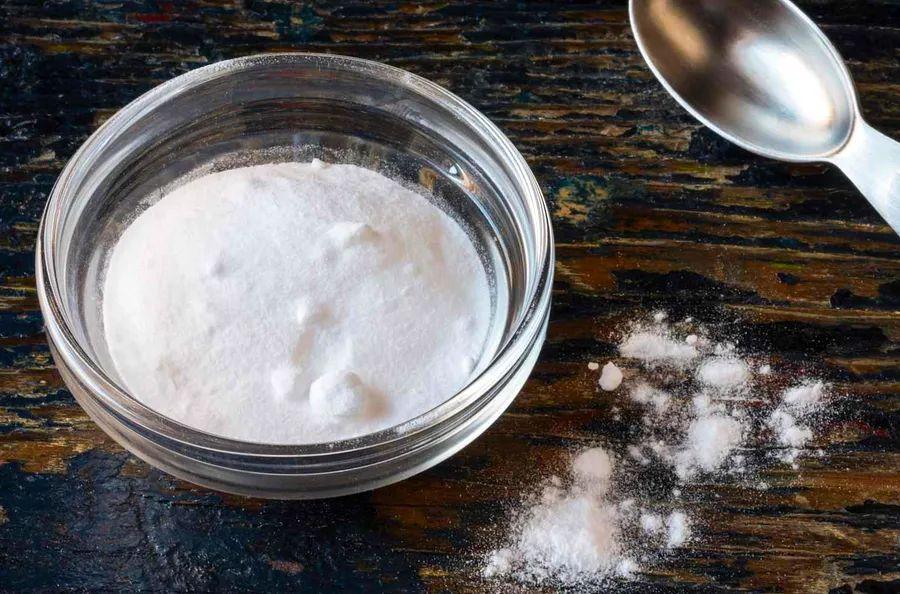Baking Soda vs. Baking Powder: What's the Difference?

While baking soda and baking powder are often used together, they serve different purposes in recipes. Keep reading to understand their unique roles, why some dishes call for both, and how to substitute one for the other if you're out of either ingredient.
What is Baking Soda and How Does It Work?

Baking soda, also known as sodium bicarbonate, is a leavening agent that creates gas (CO2) bubbles when it reacts with an acid like lemon juice, vinegar, or buttermilk. This reaction is what causes cakes and cookies to rise. If baking soda doesn’t interact with an acid, it can leave behind a bitter, metallic taste. Always measure both the baking soda and acid carefully for the best results.
One unique feature of baking soda is its quick reaction, which is perfect for experiments like model volcanoes but not so ideal for recipes that require a gradual rise, such as cakes. For that, baking powder is the better option.
What Is Baking Powder and How Does It Work?
Baking powder is another type of leavening agent that helps baked goods rise. It consists of baking soda combined with a dry acid. When mixed with liquid, it releases CO2 bubbles, and when heated, it releases gas a second time, which is why it's called "double acting" baking powder.

Is Baking Soda the Same as Baking Powder?
While baking powder contains baking soda, the two are not identical. Baking powder also includes dry acids like monocalcium phosphate and sodium acid pyrophosphate (or sodium aluminum sulfate) that react with baking soda when mixed with liquid and heat. This reaction doesn’t start until the batter is combined and heated in the oven, which is when air bubbles are created.
Occasionally, a recipe will require both baking soda and baking powder. This is because once baking soda has neutralized the available acid, the dough or batter still needs a bit more lift for the desired texture.
Baking Powder Substitutes
If you run out of baking powder, don't try substituting it with baking soda. However, you can easily make your own baking powder by mixing 2 tablespoons of baking soda with 1/4 cup of cream of tartar, then sifting the mixture a few times. Some chefs even swear that homemade baking powder tastes better than the store-bought version.
Baking Soda Substitutes
Well, kind of. Since baking powder already contains some baking soda, you can use it as a substitute in a pinch. If a recipe calls for 1/4 teaspoon of baking soda, try replacing it with 1 teaspoon of baking powder. This is a last-minute fix, but it should work.
How to Test If Your Baking Powder or Baking Soda Is Still Active
Has your baking powder or soda been gathering dust in the pantry? It might not give your baked goods the lift they need. Fortunately, there's a simple test you can do to check if they're still effective.
- To test if baking powder is still good, drop half a teaspoon into hot water. If it fizzes and forms bubbles, it's still good.
- To test baking soda, drop half a teaspoon into a small amount of vinegar. If it fizzes, it's still active.
If you don't see any reaction, it's time to ditch that old box and grab a fresh one of either baking powder or baking soda.
Baking Soda-Free Cookie Recipes
Out of baking soda? No worries! These highly rated cookie recipes don't require it.
- The Best Rolled Sugar Cookies
- Chocolate Crinkles II
- Tina's Shortbread Chocolate Chip Cookies
- Scottish Shortbread IV
- Treasure Cookies
Baking Powder-Free Cookie Recipes
Missing baking powder? These cookie recipes don't need it to turn out delicious.
- Chocolate Mint Candies Cookies
- Beth's Spicy Oatmeal Raisin Cookies
- Big Soft Ginger Cookies
- Chocolate Chocolate Chip Cookies I
- Cranberry Orange Cookies
Cookie Recipes Without Baking Powder or Baking Soda
These highly rated cookie recipes prove you don't need baking soda or baking powder to create a delicious batch.
- Cookie Pralines
- Amariette Cookies
- Scottish Shortbread IV
- Raspberry and Almond Shortbread Thumbprints
- Rainbow Cookies
More Baking Tips :
Save this list of common ingredient substitutes for when you find yourself out of something mid-recipe.
Find weight and volume conversions for common baking ingredients and see how using a scale can improve your baking skills.
New to baking? Here's a guide on how to stock your baking pantry with essentials.

1

2

3

4

5
Evaluation :
5/5